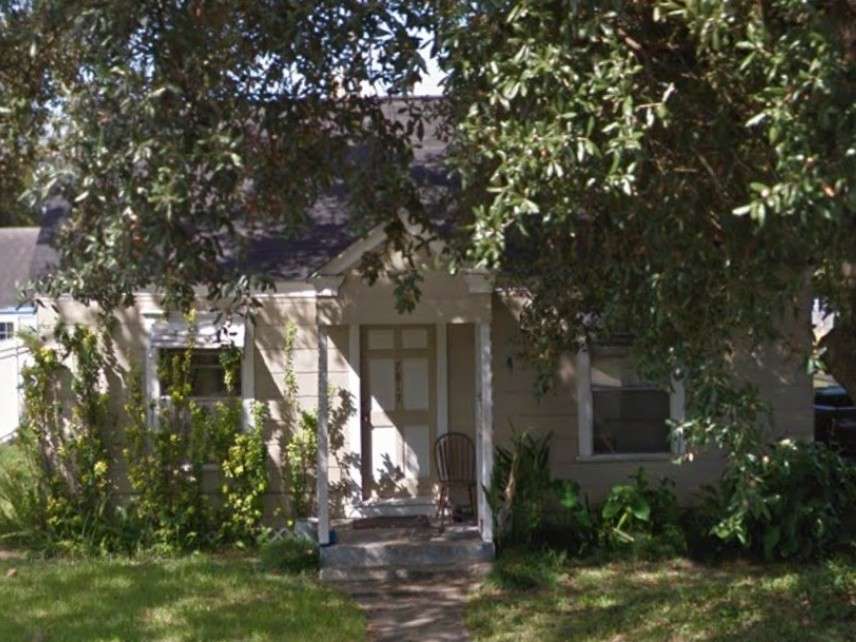Houston Cop Involved in Deadly Drug Raid Relieved of Duty Due to 'Ongoing Questions'
The questions reportedly relate to a search warrant affidavit that described drugs and a gun police never found.

An undercover narcotics officer who was involved in the bungled drug raid that killed a middle-aged couple in their Houston home last week "has been relieved of duty due to ongoing questions that cannot be answered until the case agent is interviewed," the local police union revealed in a statement yesterday. A Houston Police Department spokesperson "confirmed that the senior police officer, who joined the department in 1996, must temporarily surrender his badge pending the outcome of an internal affairs investigation," reports KHOU, the CBS station in Houston.
The officer in charge of the investigation that led to the raid, which triggered a shootout in which Dennis Tuttle and Rhogena Nicholas were killed and five officers were injured, has not been interviewed yet because "his gunshot wound has resulted in him being incapacitated while surgeries continue," the union said. Citing "three law enforcement sources," KHOU says the "ongoing questions" are related to the suspended officer's role in obtaining the no-knock search warrant authorizing the raid, which was based on a confidential informant's claim that he had bought heroin from a man in the house, where he reported seeing a 9mm handgun and "a large quantity of plastic baggies" containing heroin. Police found neither of those things when they searched the house the next day, even though the house supposedly was being watched in the interim.
KHOU says detectives plan to interview the C.I. to see if his account matches the information in the warrant affidavit. The author of the affidavit, whose name is blacked out in the publicly released copy, swore that he searched the C.I. before sending him to make a "controlled buy," that the C.I. emerged from the house with "a quantity of brown powder" later identified as black-tar heroin, that he was watching the C.I. the whole time, and that afterward "surveillance was placed on the above location in question by the narcotics officers." Since the alleged heroin and 9mm pistol had disappeared by the time police broke into the house the following evening, it seems likely that one or more of those details was not accurate.
The police union's statement decried "rumors" that the narcotics officers had raided the wrong house by mistake. "To be clear," it said, "officers were not on the wrong street and entry at that location was not made at random. We would refer you to the call slip from that location on January 8, over two weeks prior to the shooting." That record relates to a call from an anonymous woman who complained that her daughter was using drugs inside the house at 7815 Harding Street. Police Chief Art Acevedo likewise has criticized "conspiracy theorists" who speculated that the target was supposed to be 7815 Hardy Street, which is 12 miles from the house where Tuttle and Nicholas lived.
Acevedo himself is largely responsible for that speculation, because on the night of the raid he repeatedly gave "Hardy Street" as the location of the house and seemed to be reading the address from a sheet of paper. The idea that the cops had gotten confused seemed plausible in light of the disappearing heroin and the testimony of neighbors who said they had never observed any suspicious activity at the house and described Tuttle and Nicholas, who had no criminal convictions and had lived on the block for more than two decades, as perfectly nice people who never caused trouble. Those comments seemed inconsistent with Acevedo's claim that the house was so notorious as a drug den that "the neighborhood thanked our officers" for raiding it.
The "wrong house" theory took a serious blow when it turned out that at least some of the officers who had participated in the raid also had participated in the investigation that led to it, meaning they surely would have noticed if they were 12 miles from where they were supposed to be. The description and address in the warrant affidavit make it clear that no such screwup occurred. But it is obvious from the outcome that other kinds of screwups did occur, possibly coupled with deliberate dishonesty.
"When an officer-involved shooting (OIS) occurs at HPD," Acevedo said in a statement yesterday, "we consider it a legal and moral obligation to conduct a thorough and impartial investigation into the circumstances leading up to and resulting in the OIS. As I said last Thursday to our community, we will leave no stone unturned to determine the good, the bad and the ugly….I know that in addition to the OIS itself, many have questions regarding the circumstances surrounding the search warrant. All of these questions are part of our ongoing criminal and administrative investigations. Rather than releasing piecemeal information, consistent with our commitment to transparency, we will report our findings at the conclusion of our investigations."


Show Comments (51)